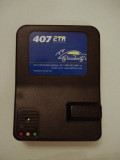The Importance of Shredding Documents
Shredding Paper

Shredded Paper Serves Many Purposes
Shredders are a wonderful invention. They serve many purposes in getting rid of junk mail and to create lining for pet cages, and shredded paper is great for throwing at someone. Identity theft is a major concern for us all. Shredding important documents is one way to protect our personal information from getting into the wrong hands.
Many things we get in the mail contain information that someone else can use to steal your money and your identity. Insurance forms, pre approved credit offers, financial statements are just some of the papers we don’t want someone else to get a hold of. These documents can be used to open bank accounts and add up debt in your name.
Each month or more often look over your financial paperwork, such as credit card and bank statements. If your identity is stolen, the sooner you find this out, the better. If you see unexpected charges against your credit card, or find your bank account has unexplained withdrawls, your identity may have been compromised. If you are not receiving some bills or credit cards start arriving, that you did not apply for, you may have had your identity stolen. If a collection agency starts contacting you about money you owe, that you did not accrue, this may be another sign that your personal financial information is being used by someone else. If you are denied a loan or credit because you have outstanding debt you did not know about, you may be a victim of credit card fraud.
In the event you find yourself in anyone or more of these situations, it is important to call at least one of the major 3 credit reporting bureaus, to place your name and identity on fraud alert. By doing this, the creditors must contact you before they are allowed to open any new accounts in your name or to make any adjustments to your existing accounts. Usually after alerting one of the credit bureaus, they will notify the other 2 credit reporting agencies to put your file on fraud alert also. You will then get a free copy of your credit report at no charge, sent to you from all 3 credit reporting bureaus.
There Are Different Types of Shredders
It is a good idea to close any accounts that have been affected. Also filing a police report is appropriate. You can also get a copy to show your creditors. The Federal Trade Commission (FTC) keeps a database of identity theft reports, so filing a compaint with the FTC, is good to do.
Other important documents to be shredded is your medical information. Medical records are often targeted by identity thieves. There is a lot of information they can get from the insurance information and the health records. It is just as important to destroy your medical records as it is to shred your credit history data. In 1996, Congress set up the HIPAA law (Health Insurance Portability nd Accountability Act, which among other provisions, further protects the privacy rights of the individual’s medical information.
Medical professionals and practioners understand how important it is to uphold their patients privacy and do destroy the medical records when they no longer need them. In fact, in the U.S. it is a law known as PHI, Protected Health Information, be handled in a manner consistent with patient privacy. That is why it is so important that we shred our own medical documents.
Using the shredder is an easy way to get rid of papers that contain coveted information.
If you have a business, it is important to consider shredding information you would not want your competitors to get a hold of. It is important to protect the confidentiality of your business, as it is to protect your own identity. You also want to make sure you keep information out of the hands of employees, who should not know information, they should not have access to. It is also a business’ priority to keep their customer and employee information private.
The United States set up a privacy act called, FACTA, Fair and Accurate Credit Transaction Act, which makes it mandatory that a business destroy any papers that has customer data on it, so that they protect consumers against unauthorized use of any of this privileged information.
There are different types of shredders. Smaller shredding machines tend to get jammed easily. If you are shredding a small amount of papers for your personal and family use, this type of shredder may work just fine. If you are shredding documents for your business, a bigger model may be a better choice in the long run, even if it costs you a little more money up front.
If you have a lot of heavy duty papers that you are shredding, an industrial shredding machine may be the best choice for your purposes. Cross cut paper shredders of any of these types cut the papers into even smaller strips. They provide more security of destruction of the documents because the blades cut the paper vertically and horizontally, which provides more security of confidentiality.
Documents to Shred
Get rid of any documents that have private information such as account numbers, passwords or pin numbers, birthdates, social security numbers, signatures, names, addresses, phone numbers and email addresses
- personal checks - canceled - keep for one year unless needed for tax purposes, or proof of payments.
- bank statements - one year at least.
- utility and phone bills, and auto lease bills - keep until they are not needed for tax purposes.
- pay stubs - one year unless needed for tax purposes, or proof of payments.
- insurance records - keep records for five years after the policy is cancelled.
- credit cards, debit cards, ATM receipts - shred after all statements have been settled.
- health care statements and medical records- at least five years and certainly until provider bill is settled.
- any pieces of paper that has your signature on it - shred as soon as possible.
- any pieces of paper that has your credit account number, phone number, social security number, medical or legal informaion on it - shred as soon as possible.
- tax records - hold onto for seven years, but at least a minimum of three years.
- home repair and improvement - about six years after you sell the house.
- warranties -keep as long as they are current.
- credit cards - cards that are no longer usable
- photo I.D.s and especially expired drivers licenses.
It is always a good idea to keep tabs on your credit rating. Get a free copy of your credit report: Annual Credit Report Request Service P. O. Box 105281 Atlanta, GA 30348-5281 877-322-8228 www.annualcreditreport.com
Don’t get your credit report from some of the advertising you see, often they come with hidden charges. Above is a free credit report you are entitled to once a year.









